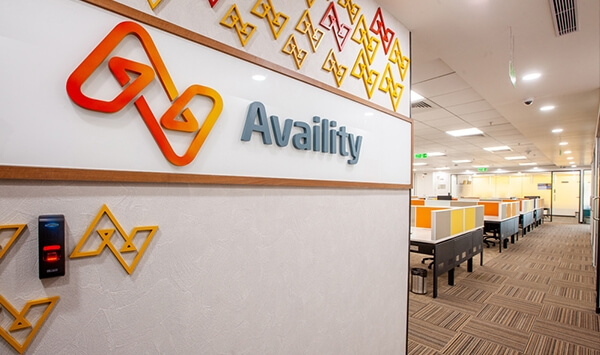In today’s fast-paced healthcare environment, communication among healthcare stakeholders is crucial to deliver quality care. Providers, payers, and technology partners must work together efficiently to ensure the best possible outcomes for patients. However, the complex nature of healthcare, along with administrative burdens and fragmented systems, often hampers the smooth exchange of information. This is where Availity, the nation’s largest health information network, steps in. Availity is dedicated to solving these communication challenges, creating a more transparent and efficient healthcare system.
With a comprehensive suite of products built on a powerful, intelligent platform, Availity facilitates over 13 billion clinical, administrative, and financial transactions annually. The platform supports real-time collaboration among providers, health plans, and technology partners, which enables stakeholders to focus on what matters most—patient care.
This article delves into how Availity works, its key features, its impact on healthcare, and how it addresses challenges to create a better care ecosystem.
What is Availity?
Availity is a leading healthcare technology company that focuses on improving the way information is exchanged between healthcare stakeholders. Founded in 2001, the company has grown to become a trusted partner for health plans, providers, and technology partners across the United States. By offering innovative solutions that enhance communication and collaboration, Availity streamlines administrative processes, reduces costs, and ultimately improves patient care outcomes.
Availity’s mission is to create a richer, more transparent exchange of information by addressing the communication barriers that exist within the healthcare system. These barriers often lead to inefficiencies, miscommunication, and unnecessary administrative costs, which can negatively affect patient care. Availity works to ensure that information flows seamlessly between all parties involved, facilitating informed decision-making and improving overall healthcare efficiency.
Vision and Mission
At the core of Availity’s mission is the commitment to shifting the focus of healthcare back to patient care. By solving the communication challenges between stakeholders, the platform allows healthcare providers to spend more time with patients and less time dealing with administrative issues. The ultimate goal is to create an environment where technology supports better outcomes and drives value-based care initiatives.
Key Features of Availity
Availity offers a wide range of products and services that support the healthcare industry, including:
- Administrative Transactions: Availity facilitates real-time transactions that streamline the administrative side of healthcare, including eligibility and benefits verification, claims submission, and remittance advice.
- Clinical Integration: By enabling providers and health plans to share clinical data in real-time, Availity helps ensure that providers have access to the most accurate and up-to-date patient information, improving care coordination.
- Revenue Cycle Management: Availity’s solutions optimize revenue cycle processes by ensuring timely payment and minimizing claim denials, improving financial outcomes for providers.
- Provider Engagement: The platform offers tools that allow providers to engage with patients more effectively, leading to better communication and adherence to care plans.
- Interoperability: Availity promotes interoperability across the healthcare ecosystem by connecting disparate systems and ensuring that data flows seamlessly between them.
How Availity Works: Solving Healthcare Communication Challenges
Facilitating Seamless Information Exchange
Availity serves as a bridge between healthcare providers, payers, and technology partners by facilitating the seamless exchange of information. This information includes clinical, administrative, and financial data, which is essential for effective patient care and healthcare operations.
For example, when a provider needs to verify a patient’s insurance eligibility before offering services, Availity enables real-time communication with the health plan to confirm coverage. This real-time verification reduces the risk of errors or delays and ensures that patients receive care without unnecessary administrative hurdles.
Availity’s platform integrates with existing electronic health record (EHR) systems, allowing providers to access patient information without the need to switch between systems. This integration not only improves workflow efficiency but also enhances the accuracy and timeliness of data shared between stakeholders.
Administrative Efficiency
Healthcare providers often face the challenge of navigating complex administrative processes. From verifying patient eligibility and submitting claims to tracking remittances and payments, these processes are time-consuming and prone to errors. Availity helps simplify these tasks by automating and streamlining key administrative functions.
- Eligibility and Benefits Verification: One of Availity’s primary features is the ability to verify a patient’s insurance coverage in real-time. Providers can access comprehensive information about the patient’s benefits and coverage status before services are rendered, reducing the risk of denied claims.
- Claims Management: Availity provides tools for healthcare providers to submit and track claims seamlessly. By ensuring that claims are complete and accurate before submission, the platform reduces the likelihood of denials, speeding up the reimbursement process.
- Remittance Advice: Availity delivers electronic remittance advice (ERA) to providers, offering detailed information about payments and adjustments. This transparency allows providers to reconcile accounts more efficiently and address any payment discrepancies promptly.
Clinical Data Sharing and Integration
Healthcare providers need access to the most up-to-date clinical information to make informed decisions about patient care. However, the fragmented nature of healthcare systems often makes it difficult for providers to access necessary clinical data. Availity addresses this challenge by facilitating clinical data integration, allowing providers and payers to share real-time clinical information.
For instance, Availity enables providers to access patient health records, lab results, and treatment histories, all in one place. This data-sharing capability promotes better care coordination and reduces the risk of duplicate tests or treatments, leading to more efficient and cost-effective care.
Enhancing Revenue Cycle Management
Revenue cycle management (RCM) is a critical component of healthcare operations, and Availity’s platform offers solutions designed to optimize RCM processes. The platform improves the accuracy of claims submissions, reduces denials, and ensures timely payment to providers.
- Denial Management: One of the major challenges faced by healthcare providers is claim denials. Availity helps providers identify potential denial reasons before claims are submitted, allowing them to address issues upfront and reduce the likelihood of denials.
- Payment Reconciliation: By providing comprehensive remittance advice and payment details, Availity makes it easier for providers to reconcile payments and ensure that they receive the correct amount for services rendered.
- Financial Reporting: Availity offers financial reporting tools that help providers track their revenue cycle performance. This visibility allows providers to identify trends, pinpoint problem areas, and make data-driven decisions to improve financial outcomes.
Interoperability and Collaboration
One of the most significant challenges in healthcare is the lack of interoperability between systems. Availity addresses this issue by acting as a hub that connects disparate systems and facilitates the smooth flow of data between them. Whether it’s exchanging clinical data between providers or processing claims between payers and providers, Availity ensures that data is shared efficiently and securely.
Availity’s platform supports interoperability by using industry standards such as HL7 and FHIR (Fast Healthcare Interoperability Resources). These standards ensure that data is exchanged in a format that is compatible with different systems, promoting better communication and collaboration across the healthcare ecosystem.
Availity’s Impact on the Healthcare Industry
Improving Efficiency and Reducing Costs
By automating and streamlining administrative processes, Availity helps reduce the burden on healthcare providers and payers. This leads to significant cost savings and improved operational efficiency. Providers can spend less time dealing with paperwork and more time focusing on patient care, while payers benefit from more accurate claims processing and faster payment cycles.
Enhancing Patient Care
When healthcare providers have access to accurate, real-time data, they can make better-informed decisions about patient care. Availity’s ability to integrate clinical and administrative data ensures that providers have a complete view of the patient’s health, leading to more coordinated and effective care. This not only improves patient outcomes but also enhances patient satisfaction.
Supporting Value-Based Care
As the healthcare industry shifts toward value-based care, where providers are incentivized to focus on outcomes rather than the volume of services, effective communication and data sharing become even more critical. Availity’s platform supports value-based care initiatives by enabling real-time collaboration between providers and payers, ensuring that all stakeholders are working together toward the same goals.
For example, through Availity’s platform, health plans can share quality metrics with providers, allowing them to track their performance and identify areas for improvement. This data-driven approach helps providers align their care delivery with value-based care principles, ultimately leading to better patient outcomes and cost savings.
Challenges Availity Addresses
Fragmented Systems and Communication Barriers
One of the biggest challenges in healthcare is the fragmentation of systems and the lack of communication between different stakeholders. Providers often have to deal with multiple health plans, each with its own set of rules and processes, making it difficult to navigate the system efficiently. Availity addresses these issues by creating a unified platform that brings together providers, payers, and technology partners, ensuring that information flows seamlessly across the healthcare ecosystem.
Administrative Burden
The administrative burden placed on healthcare providers is another significant challenge that Availity helps alleviate. Providers are often bogged down by time-consuming tasks such as verifying patient eligibility, submitting claims, and reconciling payments. Availity simplifies these processes by automating key administrative functions, reducing the time and effort required to manage these tasks.
Data Security and Compliance
In an era where data security is paramount, Availity ensures that sensitive healthcare information is protected. The platform complies with industry standards such as HIPAA (Health Insurance Portability and Accountability Act) to safeguard patient data and ensure that it is shared securely between stakeholders. This commitment to data security helps build trust among healthcare providers, payers, and patients.
Conclusion
Availity stands at the forefront of healthcare technology, offering a comprehensive suite of products and services designed to enhance communication and collaboration across the healthcare ecosystem. By facilitating the seamless exchange of clinical, administrative, and financial data, Availity helps reduce administrative burdens, improve patient care, and support value-based care initiatives.
As healthcare continues to evolve, the need for real-time collaboration and interoperability will only grow. Availity is well-positioned to meet these challenges and drive the industry toward a future where technology supports better outcomes and patient care is the top priority. Through its innovative platform and commitment to solving communication challenges, Availity is helping healthcare providers, payers, and technology partners work together more effectively, ultimately creating a more efficient and transparent healthcare system for all.




